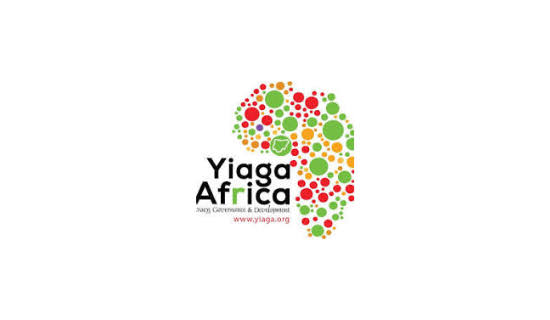The recently concluded Edo State governorship election has come under intense scrutiny as Yiaga Africa, a prominent civil society group, declares that the poll failed to meet basic integrity standards. The organization’s damning assessment, released on Monday, September 23, 2024, has sent shockwaves through Nigeria’s political landscape, casting a shadow over what was hoped to be a beacon of democratic progress in the region.
Yiaga Africa’s conclusions stem from its deployment of the Process and Results Verification for Transparency (PRVT) methodology, a comprehensive approach to election observation. The group mobilized an impressive force of 300 stationary and 25 roving observers, strategically positioned across all 18 Local Government Areas (LGAs) of Edo State. This extensive coverage allowed for a representative sample of polling units, providing a robust foundation for their analysis.
Dr. Aisha Abdullahi, Chair of Yiaga Africa’s 2024 Edo Election Mission, explained the significance of their approach: “Our PRVT methodology allows us to verify the accuracy of official results by comparing them with data collected from a statistically representative sample of polling units. This scientific approach provides a powerful tool for detecting discrepancies and potential manipulation.”
According to Yiaga Africa’s observations, the actual voting process on Saturday, September 21, 2024, largely adhered to established procedures. The group noted that key processes such as accreditation, voting, counting, and recording of results at the polling unit level substantially complied with official guidelines.
However, the seemingly smooth conduct at polling units belied deeper issues that would soon come to light. Samson Itodo, Executive Director of Yiaga Africa, highlighted this dichotomy: “While we observed general compliance with procedures at the polling unit level, our concerns lie primarily with the subsequent stages of the electoral process, particularly the collation of results.”
The crux of Yiaga Africa’s criticism centers on the results collation process. The group alleges that this critical phase was compromised by the actions of some biased Independent National Electoral Commission (INEC) officials working in concert with other actors.
We recorded incidents of results manipulation and disruptions during ward and local government collation in several LGAs, including Ikpoba/Okha, Etsako West, Egor, and Oredo,” stated Dr. Abdullahi. These incidents involved intimidation of INEC officials, observers, and party agents, as well as collation of results contrary to the provisions of the Electoral Act and INEC guidelines.
Yiaga Africa’s concerns are not based on anecdotal evidence alone. The group’s statistical analysis, drawing from reports of 287 out of 300 sampled polling units, revealed significant inconsistencies in the official results announced by INEC.
For instance, the official results for the All Progressives Congress (APC) in Oredo and Egor LGAs fell outside Yiaga Africa’s PRVT estimates. Similarly, in Esan West LGA, the official results for the People’s Democratic Party (PDP) deviated from the projected range. The Labor Party’s results in Oredo LGA also showed discrepancies.
Itodo emphasized the implications of these findings: “These inconsistencies with our PRVT estimates strongly indicate that the results were altered during the collation process. It’s a severe blow to the integrity of the entire election.”
Official Results vs. Yiaga Africa’s Estimates
According to INEC’s official announcement, APC candidate Monday Okpebholo emerged victorious with 291,667 votes (51.1% of the total), followed by PDP’s Asue Ighodalo with 247,274 votes (43.3%), and Labor Party’s Olumide Akpata trailing with 22,763 votes (4.0%).
However, Yiaga Africa’s analysis suggests these figures may not reflect the true will of Edo voters. The group’s estimates, based on their sampling methodology, indicate significant disparities that cannot be explained by standard margins of error.
Dr. Thompson Ayodele, an independent election analyst, commented on the situation: “When we see such stark differences between official results and those projected by reputable observer groups, it raises serious questions about the integrity of the entire process. It’s not just about numbers; it’s about the fundamental principles of democratic representation.”
In light of these findings, Yiaga Africa has strongly condemned the actions of INEC officials suspected of altering figures during collation, as well as security personnel who allegedly interfered with the process. The group emphasizes that the disruptions observed in key LGAs created opportunities for election manipulation, significantly undermining the credibility of the results.
We call on INEC to provide a detailed, transparent account of the collation process,” urged Dr. Abdullahi. The people of Edo State, and indeed all Nigerians, deserve to know the truth about how their votes were counted and tabulated.
As Nigeria grapples with the fallout from this controversial election, the implications extend far beyond the borders of Edo State. The integrity of the electoral process is fundamental to democratic governance, and the allegations raised by Yiaga Africa strike at the heart of this principle.
While INEC’s turnout figures and rejected ballot statistics align with Yiaga Africa’s estimates, the discrepancies in the actual vote counts remain a cause for serious concern. As calls for investigation and accountability grow louder, the coming weeks will be crucial in determining whether the true voice of Edo’s electorate will be heard and respected.
The controversy surrounding the Edo governorship election serves as a stark reminder of the ongoing challenges facing Nigeria’s democratic institutions. It underscores the vital role of civil society organizations in safeguarding electoral integrity and highlights the need for continued vigilance and reform in the country’s electoral processes.



